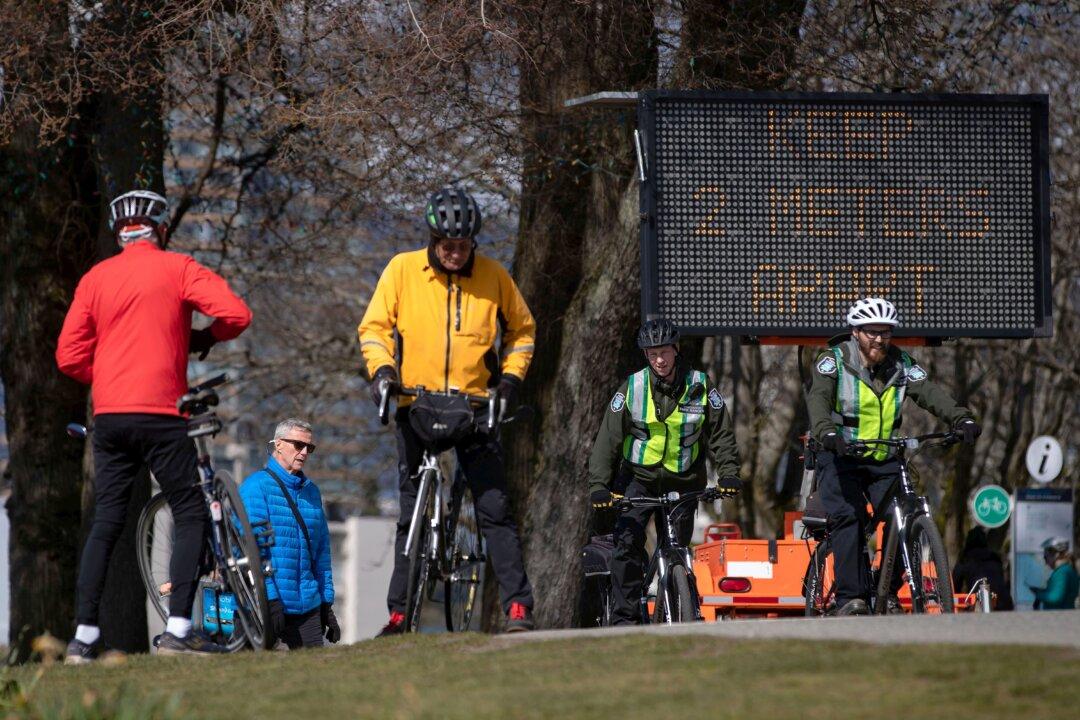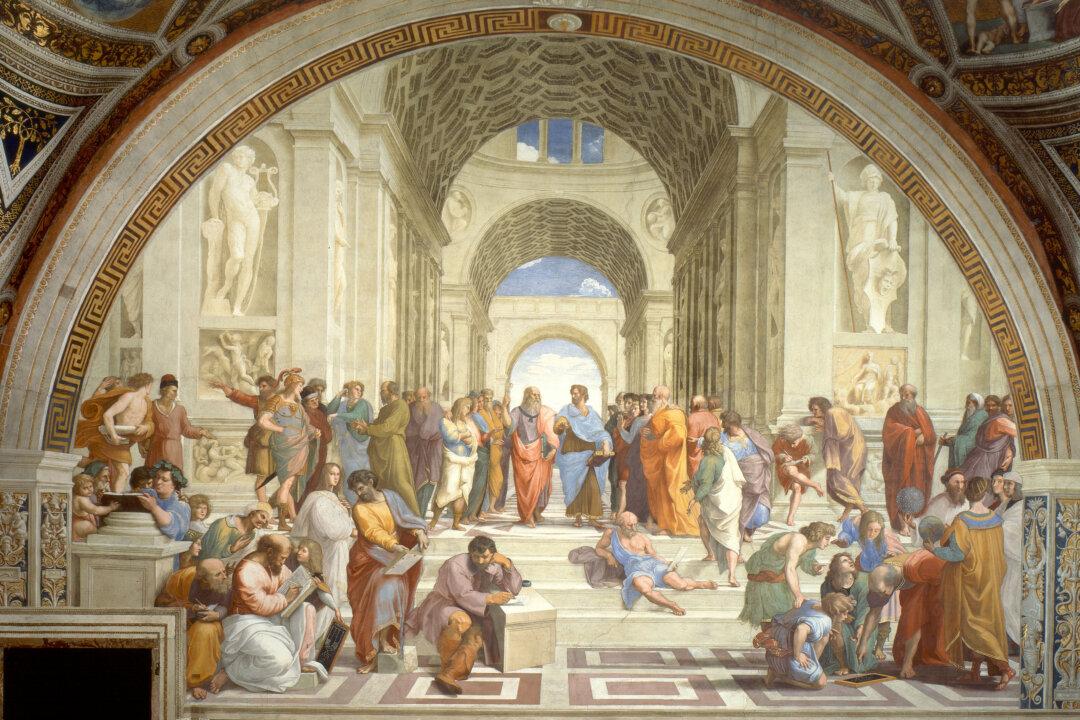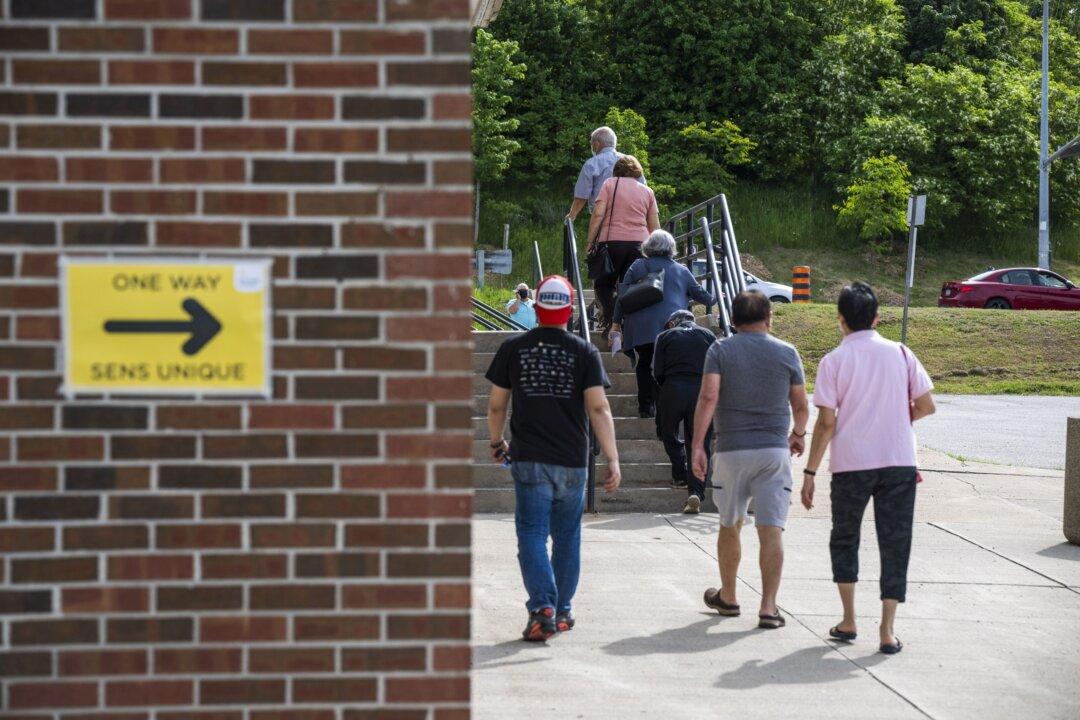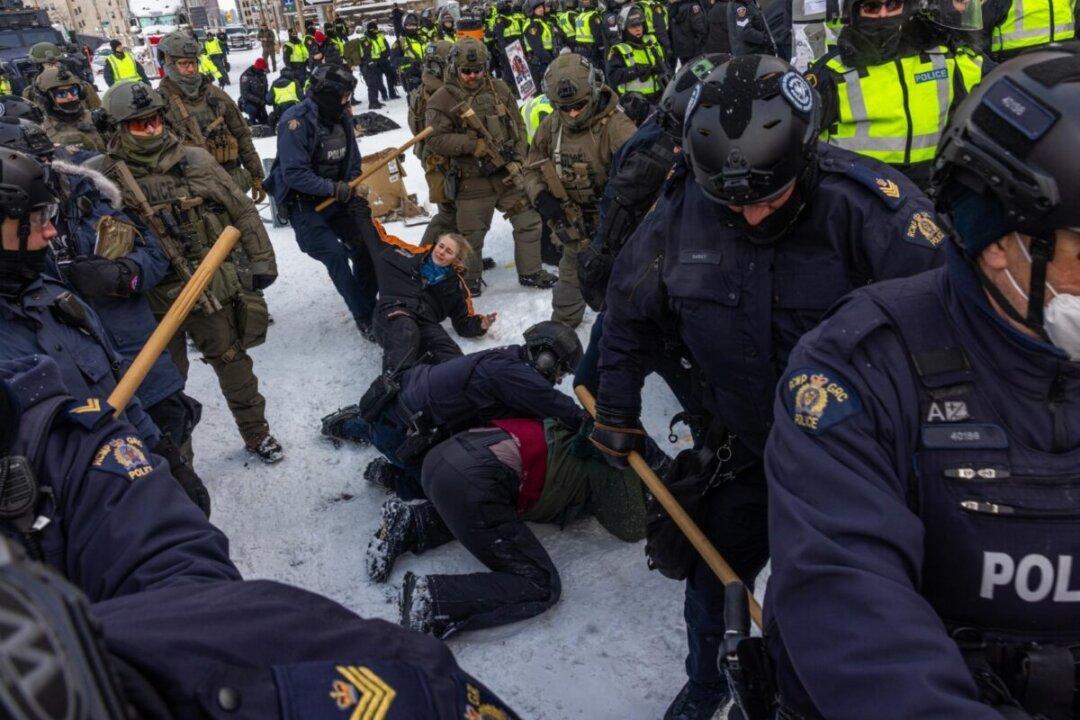Commentary

A sign warns people to keep at least 2 metres apart from one another due to concerns about the spread of COVID-19, as park rangers and others bike and walk on the seawall, in Vancouver on March 25, 2020. The Canadian Press/Darryl Dyck
|Updated:
Harley Price teaches courses on pre-modern literature and philosophy at the University of Toronto’s School of Continuing Studies. His most recent book is “Give Speech A Chance: Heretical Essays on What You Can’t Say or Even Think,” available from fgfbooks.com and Amazon.
Author’s Selected Articles




